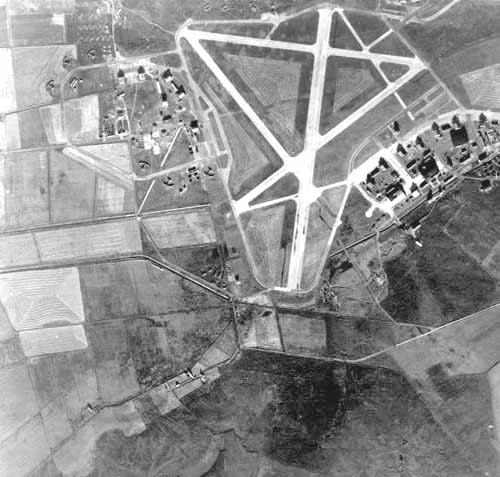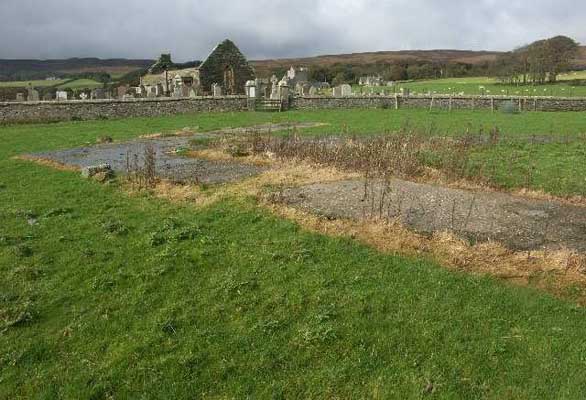
So
on 9th August the Squadron left Lee for Machrihanish. The buzz
was that this station on the Mull of Kintyre was a training ground for the
kind of work Ransford and company had been doing in Malta- all-weather
night strikes .As always there were two parties, the air party and the
land party, the latter in the capable hands of Lt. Palmer and S/Lt Paddy
Allen, our ‘mad’ Irishman who had joined us on 27th July. They
accompanied our 40 ‘troops’ to Waterloo-Euston-Glasgow by rail and
then by bus to HMS Landrail. The air trip north was memorable for its stop
for lunch at Ternhill, a stone’s throw away from James Turner’s home
at Wem. Before landing James and Ransford in
‘A’ flight flew low in greeting over the Rectory to greet the Rector,
James’s father. This was not the first or last visitation and when James
was showing Owen Johnstone and John Taylor round the grounds in 1980, he
remarked that on one visitation when Ransford ‘shot the place up’ Jim
Palmer had omitted to reel in his trailing aerial and “had left it in
that tree and I suppose it’s still there”.
After
lunch at Ternhill we took our leave in spectacular fashion. Ransford
ordered a formation take-off and two flights of Swordfish roared down the
runway , executed what was known as a split-arsed climbing turn off the
deck. We thought it very impressive. The Commander of the station did not.
His was a training station
where such antics were seen as breaches of flying discipline, so a signal
was sent to Lee complaining about the offence and about a Lt. Slater who
appeared to be in charge. Lee, in the person of Commander (A) (vice the
Commodore, on leave) forwarded the signal to Macrihanish ‘for such
action as seemed desirable’. None was.
From
Chief Instructor No.3. (Pilot)

